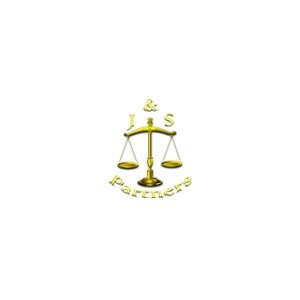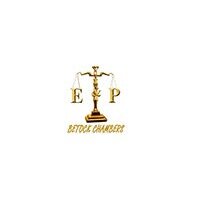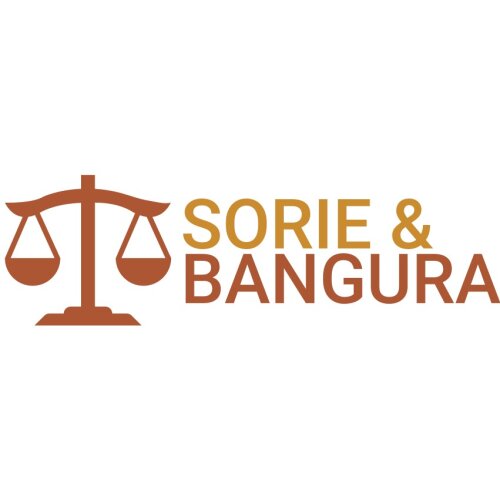Best Marriage Lawyers in Sierra Leone
Share your needs with us, get contacted by law firms.
Free. Takes 2 min.
Free Guide to Hiring a Family Lawyer
Or refine your search by selecting a city:
List of the best lawyers in Sierra Leone
About Marriage Law in Sierra Leone:
Marriage in Sierra Leone is governed by both statutory and customary laws. The Marriage Act of 2007 provides the legal framework for civil marriages, while customary marriages are recognized under the Customary Marriage and Divorce Act of 2017. It is important to understand the different types of marriages and the legal obligations that come with each.
Why You May Need a Lawyer:
There are various situations where you may need a lawyer for marriage-related issues in Sierra Leone. Some common reasons include disputes over dowry payments, disagreements over inheritance rights, divorce proceedings, and issues related to child custody. A lawyer can help navigate the complexities of the legal system and ensure that your rights are protected.
Local Laws Overview:
Key aspects of local laws relating to marriage in Sierra Leone include the legal age of marriage, which is set at 18 years old. Polygamy is permitted under customary law but restricted in civil marriages. Property rights, inheritance, and divorce laws differ between civil and customary marriages, so it is important to seek legal advice to understand your rights.
Frequently Asked Questions:
1. Can I marry someone from a different tribe in Sierra Leone?
Yes, inter-tribal marriages are allowed in Sierra Leone.
2. What are the legal requirements for getting married in Sierra Leone?
You must be at least 18 years old and provide documentation such as a birth certificate, proof of identity, and parental consent if under 21.
3. How can I legally end a marriage in Sierra Leone?
You can dissolve a marriage through divorce proceedings in court, following the procedures outlined in the Marriage Act.
4. Are prenuptial agreements recognized in Sierra Leone?
Yes, prenuptial agreements are enforceable in Sierra Leone, but they must be fair and reasonable.
5. What are the legal rights of women in marriage under Sierra Leonean law?
Women have legal rights to property, inheritance, and maintenance under both civil and customary laws.
6. Can same-sex marriages be legally recognized in Sierra Leone?
No, same-sex marriages are not legally recognized in Sierra Leone.
7. How can I prove the validity of my customary marriage in Sierra Leone?
You can register your customary marriage with the local authorities or traditional leaders to have it legally recognized.
8. Can a foreigner marry a Sierra Leonean national in Sierra Leone?
Yes, foreigners can marry Sierra Leonean nationals in Sierra Leone, but they must comply with the legal requirements for marriage.
9. What are the legal implications of polygamy in Sierra Leone?
Under customary law, polygamy is permitted, but civil marriages are monogamous. Polygamous marriages must be registered and comply with the laws regarding spousal rights and obligations.
10. How can I protect my assets in the event of a divorce in Sierra Leone?
You can seek legal advice to draft a prenuptial agreement or take steps to protect your assets during the marriage to safeguard them in case of divorce.
Additional Resources:
If you need legal advice on marriage in Sierra Leone, you can contact the Sierra Leone Legal Aid Board or seek assistance from a reputable law firm specializing in family law.
Next Steps:
If you require legal assistance for marriage-related issues in Sierra Leone, consider consulting with a qualified lawyer who can provide guidance and representation in navigating the legal system. Be sure to gather all relevant documents and information related to your case before meeting with a lawyer to ensure an efficient and productive consultation.
Lawzana helps you find the best lawyers and law firms in Sierra Leone through a curated and pre-screened list of qualified legal professionals. Our platform offers rankings and detailed profiles of attorneys and law firms, allowing you to compare based on practice areas, including Marriage, experience, and client feedback.
Each profile includes a description of the firm's areas of practice, client reviews, team members and partners, year of establishment, spoken languages, office locations, contact information, social media presence, and any published articles or resources. Most firms on our platform speak English and are experienced in both local and international legal matters.
Get a quote from top-rated law firms in Sierra Leone — quickly, securely, and without unnecessary hassle.
Disclaimer:
The information provided on this page is for general informational purposes only and does not constitute legal advice. While we strive to ensure the accuracy and relevance of the content, legal information may change over time, and interpretations of the law can vary. You should always consult with a qualified legal professional for advice specific to your situation.
We disclaim all liability for actions taken or not taken based on the content of this page. If you believe any information is incorrect or outdated, please contact us, and we will review and update it where appropriate.
Browse marriage law firms by city in Sierra Leone
Refine your search by selecting a city.











